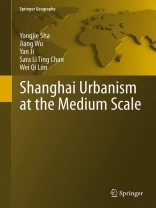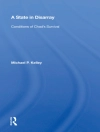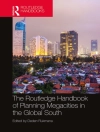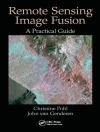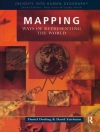This book focuses on observing and understanding the urban planning and relevant development patterns applied to the creation of urban districts against the backdrop of the current rapid urbanization and transformation of Shanghai on its way to becoming a world city. Based on a review of the four stages of city evolution, a series of case studies on typical urban districts through the city’s building history to date points out key issues in connection with current developments. Three rapidly developing districts in Shanghai are studied with regard to alternative urban planning and design solutions, and further opinions from other perspectives including city government, real estate development and professional education, reveal challenges in the practical implementation of changes. This book indeed provides an approach to in-depth observation and understanding of urban planning and current development patterns at the medium scale of Chinese urbanization for those from academic, professional, investment, public administration and related circles who would like to join the urban transformation process.
Associate Professor Yongjie Sha and Professor Jiang Wu work at Tongji University. Yan Ji is an architect and urban designer in Shanghai. Sara Li Ting Chan and Wei Qi Lim work in Singapore as architect and planner in government service.
Mục lục
Introduction.- Understanding Shanghai Urbanism.- Exploring Alternative Solutions for Urban Regeneration and New City Making.- Reflecting on Future Chinese Urbanity.- Conclusion.
Giới thiệu về tác giả
Yongjie Sha is Associate Professor of Architecture & Urban Design at College of Architecture and Urban Planning (CAUP), Tongji University, and Deputy Director of the Institute of Architecture and Urban Space, Tongji University. He received his Doctorate on Architectural History from Tongji University and his MDES from Harvard University Graduate School of Design. Sha’s research and practice focus on the regeneration of Chinese cities under the current urbanization background and based on Asian urbanism study. Sha studied in Tokyo in the late 1990s, taught urban design studio at Pavia University, Italy as Visiting Professor and was Visiting Associate Professor of the National University of Singapore (2010-2012). Sha teaches urban design at Tongji University and meanwhile closely works with city authorities consulting on urban plan issues and urban renewal projects across China. Since 2010 he has been a member of the Urban Space and Conservation Board of Shanghai Urban Planning Committee. His publications include Designing the American City (2004, bilingual, co-authored with Richard Marshall), Shanghai Wukang Road: A Historical Approach to Urban Regeneration (2009, in Chinese, co-authored with Yan Ji and Zonghao Qian) and Towards A New Chinese Urbanity: Urban Design Concept of Shui On Land Developments (2010, in Chinese).
Jiang Wu is professor of architecture at the College of Architecture and Urban Planning at Tongji University, where he received his B. Arch, M. Arch and Doctorate in Architectural History, and became a faculty member in 1986. His research efforts cover the history of architecture and the city, urban planning and design, especially concentrating on Shanghai. He served as the Deputy Director of the Shanghai Urban Planning and Administration Bureau from 2003 to 2008. Since 2008 he has been the Vice President of Tongji University. He is a board member of the Architecture Society of China, the Deputy President of Architectural Society of Shanghai and a member of the Chinese Historical City Conservation Commission. His publications include A History of Shanghai Architecture 1840-1949(second version, 2008), Conservation Planning and Administration on Shanghai Historical and Cultural Areas (2007) and Education of Modern Architecture in China 1920-1980 (2008).
Yan Ji is principal architect and urban designer at Vangel Planning and Design (Shanghai). She received her MArch. from Dalian University of Technology, China and MSc. in the direction of sustainable built environment from University College London, UK. She is a LEED accredited professional by USGBC and Class 1 Registered Architect of China, also having considerable architectural practice experience in China, US and Singapore. Besides design and consulting practice, she has been equally devoted to the research side of sustainable building design and urban design. She has published books and journal articles in the areas of sustainable design, urban design and urban studies.
Sara Li Ting Chan received her Bachelor of Arts (Architecture) and Master of Architecture with a specialisation in Urban Design from the National University of Singapore. She was an architecture student tutored by Professor Yongjie Sha working on the research from Dec 2010 to Oct 2012 in Singapore and Shanghai, and presently works in Singapore as an architect.
Wei Qi Lim received her Bachelor of Arts (Architecture) and Master of Architecture with a specialisation in Urban Design from the National University of Singapore. She was an architecture student tutored by Professor Yongjie Sha working on the research from Dec 2010 to Oct 2012 in Singapore and Shanghai, and presently works in Singapore as an architect and planner in government service.
